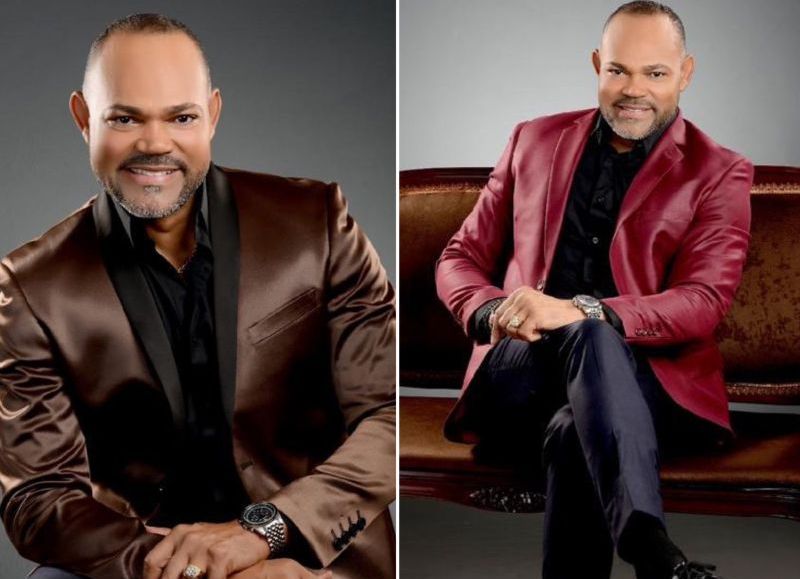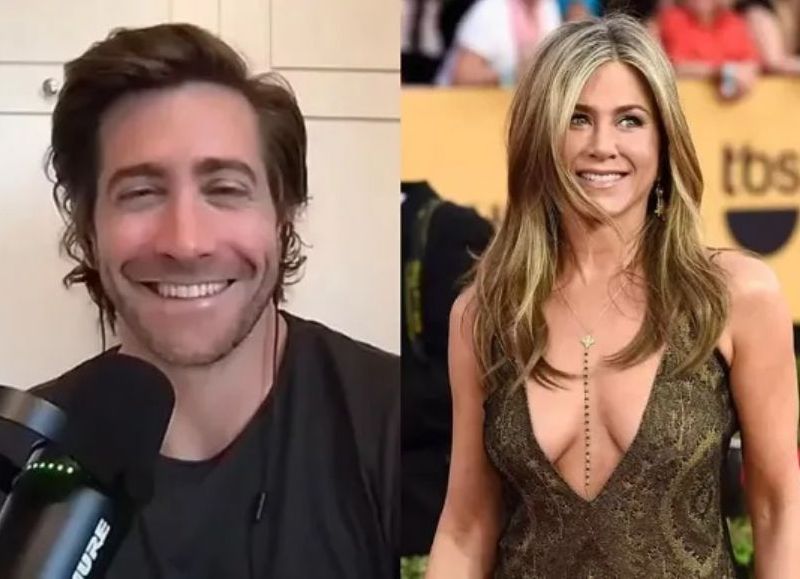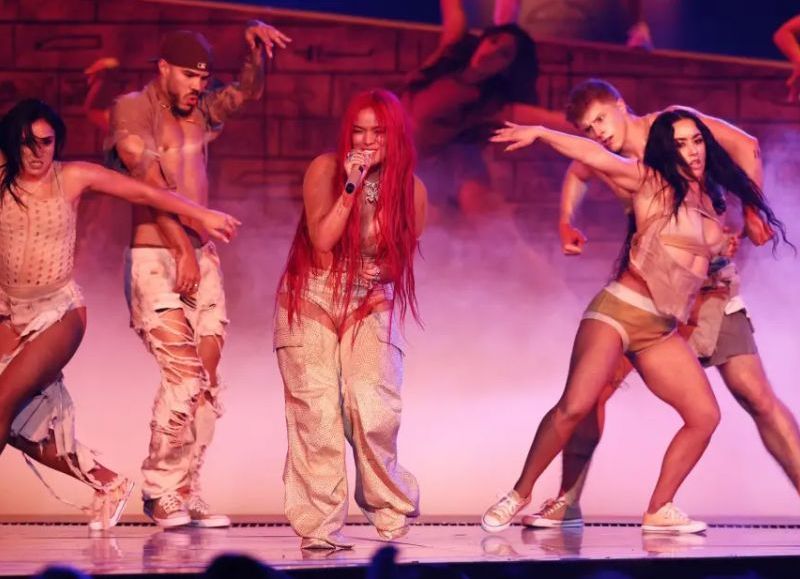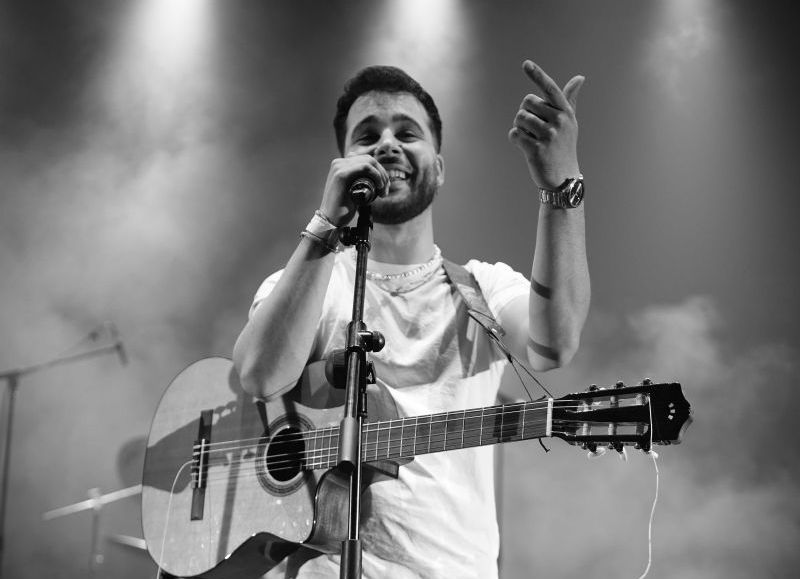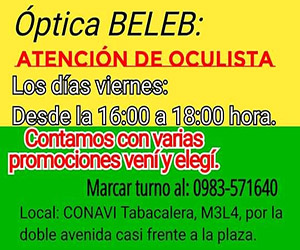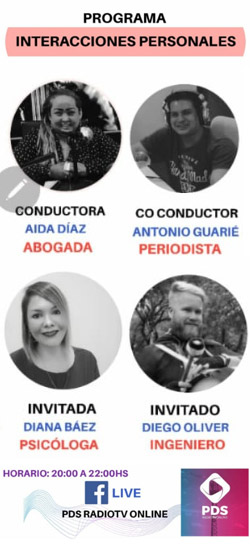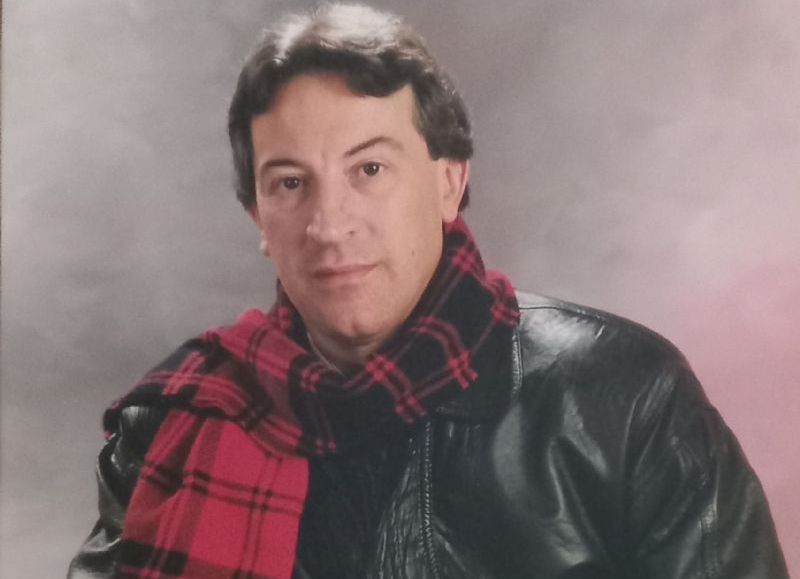
NOVA dialogó, a través de Neni Gibelli, con el cantante y compositor Jhosemaria De Niro, quien brindó una entrevista exclusiva al medio para hablar de su música y sus comienzos en este mundo.
Gibelli: ¿Cuándo comenzó tu carrera artística?
J.De Niro: El momento del inicio depende del punto de vista que consideremos “el comienzo “de mi actividad artística. Una cosa es la decisión de ser “cantante” y otra son los hechos que la han convertido en realidad. La decisión de ser cantante profesional la tomé a mis 16 años.
¿Cómo fue que lo decidiste?
Es verdad que la tendencia apareció en mi infancia de niño cantor. Una vez me llevaron a Canal 9 para que Hugo Guerrero Marthineitz me dejara cantar en su programa “El Club de los Discómanos”.
Martihneitz, que luego fue muy importante en los medios radiales y televisivos, me escuchó cantar y dijo que no quedaba bien un niño cantando canciones de amor y que me dejasen crecer como un ser corriente sin truncar mi infancia.
Una vez lo crucé en la calle, en Buenos Aires y lo detuve para recordarle el episodio. Se emocionó y me preguntó qué opinión tenía yo de aquélla sugerencia. Le dije que yo estaba profundamente agradecido.
El bachillerato en el Colegio Nacional Mariano Moreno me convirtió en el cantor oficial, desde el segundo hasta el último año. Los Colegios tenían verdaderos teatros y me fui integrando al enorme escenario del salón de actos, donde yo actuaba en cada acontecimiento cultural o fecha patria que mereciera la participación de algún alumno con habilidades artísticas.
Pero lo decisivo fue la participación, siempre con el Instituto, en un Sainete (Gabino el Mayoral, de García Velloso) que representamos en el Canal 7 junto a las alumnas del Normal 4, también de la Capital. Cuando me vi en un set de TV algo muy fuerte me sucedió y dije “aquí está mi destino”.
¿Y fue así?
No, para nada. El camino para actuar en TV era conseguir un contrato con una casa discográfica y yo nunca lo logré. Presentaba muchas grabaciones con canciones que muchos elogiaban por su calidad y dulzura.
Pero el camino era más sinuoso. Para lograrlo había que transitar “La noche de la farándula”, negociar con mercaderes del sexo que en muchos casos eran directores artísticos de las discográficas o pertenecer a algún partido político, como sucedió en la tan recordada “Época de la canción de protesta”.
Muchos van a salir a atacarme por estas palabras. Siempre hay excepciones, pero el mundo artístico más que ningún otro, se ha caracterizado por éstos turbios mecanismos. Lo vemos en la actualidad donde se han revelado verdaderas atrocidades y acosos sufridos por varios artistas.
Yo soy hijo de un hombre cultivado y una madre de gran carácter, por lo tanto, abandoné el intento de dedicarme totalmente al canto y me sumergí en el mundo universitario empujado por intereses intelectuales que eran muy fuertes para mí.
¿Qué recuerdas de aquel momento casi “embrionario “de tu carrera?
Una vez fui a la puerta de canal 7 a esperar a un cantor folklórico a quien conocí en mi barrio. Tenía una voz increíblemente potente y bella. Se llamaba Juan Carlos Navarro y le pedí que me ayudara a llegar a la TV.
Me llevó a la primera profesora de canto que tuve en mi vida llamada “Clarita Calvo”.
Aquél cantante me dio los primeros consejos extraordinarios que me acompañan hasta este momento junto a las enseñanzas de mi maestro de interpretación Virgilio Expósito.
Luego otro maestro llamado José María Battolla (vecino de mi barrio y autor de la marcha del Ferrocarril Oeste), me presentó a mi segundo y último profesor de canto: el maestro italiano Cassini que había sido pianista de Tito Schipa.
Luego me puse en manos de foniatras para aprender la técnica de impostación de voz ya que mi camino era educarla y sin someterme a la lírica. Los profesores de canto tienen la deformación profesional de llevar a los alumnos hacia esas escuelas de bel canto, que no son para todas las gargantas.
Recuerdo con simpatía mis conciertos realizados en pequeños teatros y cafés – concerts, y mi relación breve e intensa con Luis Sandrini. El famoso actor me llevó a ver a Pipo Mancera, quien me apartó por mucho tiempo de mi sueño de cantor porque me dijo: “Yo te puedo poner un sábado para cumplir con Luis, pero el camino es conseguir un contrato con una discográfica ya que los minutos son muy caros y los pagan las casas de discos”.
El entonces famosísimo cantante brasileño Altemar Dutra, a quien conocí a fuerza de seguirlo en sus conciertos, me propuso llevarme a Brasil. Le gustaba mi voz y mi personalidad pues a pesar de admirarlo, nunca lo imité.
Pero yo era menor de 21 años y mi padre no me autorizó para viajar a Brasil y mucho menos a cantar. Fin del intento. Yo no tenía padre mánager, como otros, ni apoyo importante.
Mi padre era un hombre muy relacionado pero siempre me apartó del camino de cantor profesional. Acostumbraba a llevarme a escuchar grandes cantores que habían sido notables y cantaban en cantinas por un plato de comida. Eso me dio miedo. Él quería un hijo universitario.
¿Cómo conociste a Luis Sandrini?
A través de Antonio Scelfo, vinculado a la infancia de mi madre. El tío Antonio (así lo llamaba mi madre aunque no tenía ningún lazo sanguíneo con él) era íntimo amigo de Sandrini. Muchas veces fui a la casa de Don Luis, que vivía en la calle Alvear de la Ciudad de Martínez en zona norte.
También yo frecuentaba el teatro Astral, le hacía mandados a Sandrini y compartía con él varias horas en su camerino donde escuchaba hermosos relatos de su vida. También participaba de esos encuentros su esposa Malvina Pastorino.
¿Qué hiciste luego de ese “abandono” de tu actividad artística?
Fue un abandono parcial, pues continué cantando en eventos culturales al aire libre producidos por la Municipalidad de Buenos Aires. El advenimiento de la democracia en 1973 me llevó a la Patagonia para ocupar un importante cargo oficial en la Provincia del Chubut, debido mis estudios y trabajos de campo entre las Comunidades Indígenas que me permitieron una sólida formación sociológica, en particular dentro de la Antropología Social, muy de moda en aquellos años.
Y en 1975 me dediqué a trabajar en la actividad privada como Sociólogo que resultó una bella y exitosa experiencia. Sin embargo, impulsado por el deseo de cantar abrí dos café-concerts memorables en Puerto Madryn, donde cantaba como dueño y anfitrión.
¿Qué te hizo salir del confort de Puerto Madryn?
Haber conocido a Antonio Prieto, a quien contraté para actuar en mi local y en el club de la Empresa donde yo trabajaba. Él había sido uno de mis ídolos de infancia. Tenerlo allí y en mi casa me animó a intentar cambiar mi suerte. Yo quería ser cantante y no sociólogo ni psicólogo.
Además Antonio Prieto me dijo: “Cantas muy bien. Haz lo necesario para ser feliz pues la vida no dura nada y la juventud se va volando”.
¿Cómo siguió tu recorrido por el mundo de la canción?
Necesitaríamos extender ésta nota en otra, porque lo que siguió fue inesperado, muy doloroso pero rico en experiencias alucinantes en un camino sembrado de espinas que fui sorteando dejando detrás enormes pérdidas, lleno de dudas y soledades que acechaban en el largo camino que me trajo hasta aquí.
---------------------------------------------------------------------------------------------------------
N.Gibelli: When did you start your artistic career?
J.De Niro: The moment of the beginning depends on the point of view from which we consider "the beginning" of my artistic activity.
The decision to become a "singer" is one thing, but the events that made it a reality are another. I made the decision to become a professional singer when I was 16 years old.
How did you decide?
It's true that this tendency appeared in my childhood as a child singer. Once I was taken to Channel 9 so that Hugo Guerrero Marthineitz would let me sing on his programme "The discoman’s Club".
Martihneitz, who later became very important in the radio and television media, heard me sing. He said that it didn't look good for a child to sing love songs so they should let me grow up as a normal person without interrupting my childhood.
One day I passed him on the street in Buenos Aires and stopped him to remind him of this episode. He was touched and asked me what I thought of his suggestion. I told him that I was very grateful to him.
The baccalaureate at the Colegio Nacional Mariano Moreno made me the official cantor, from the second to the last year. The schools had real theaters and I became part of the huge stage of the auditorium, where I performed in any cultural event or national event that merited the participation of a student with artistic abilities.
The decisive event was my participation, always with the Institute, in a Sainete (Gabino el Mayoral, by García Velloso) which we performed on Channel 7 together with the students of Normal 4, also in the Capital.
When I saw myself on a TV set something very powerful happened to me and I said, "This is my destiny".
And was it like that?
No, not at all. The way to perform on TV was to get a contract with a record company and I never did. I presented many recordings with songs that many people praised for their quality and sweetness.
The road was more tortuous. To make it, you had to go through the "night of show business", negotiate with sex merchants who in many cases were artistic directors of the record companies, or belong to a political party, as happened in the much-remembered "protest song era".
Many will attack me for these words.
There are always exceptions, but the artistic world, more than any other, has been characterized by these dark mechanisms. We see it today where real atrocities and harassment suffered by various artists have been revealed.
I am the son of a cultured man and a mother of great character, so I gave up trying to devote myself entirely to singing and immersed myself in the university world, driven by intellectual interests that were too strong for me.
What do you remember from that almost "embryonic" moment of your career?
Once I went to the door of Channel 7 to wait for a folk singer I knew from my neighborhood. He had an incredibly powerful and beautiful voice. His name was Juan Carlos Navarro and I asked him to help me get on TV.
He took me to the first singing teacher I ever had in my life called "Clarita Calvo".
This singer, along with the teachings of my acting teacher Virgilio Expósito, gave me my first extraordinary advice, which I still carry with me today.
Then another teacher called José Maria Battolla (a neighbor of mine and author of the Ferrocarril Oeste march), introduced me to my second and last singing teacher: the Italian maestro Cassini who had been Tito Schipa's pianist.
I then placed myself in the hands of phoniatrics to learn the technique of vocal imposition, because my way was to train my voice without submitting myself to lyrics. Singing teachers have the professional deformation of taking their pupils to these bel canto schools, which are not for all throats.
I fondly remember my concerts in small theaters and cafés - concerts, and my brief but intense relationship with Luis Sandrini.
The famous actor took me to see Pipo Mancera, the man who had kept me away from my dream of becoming a singer for so long. He told me "I can give you a Saturday to meet Luis, but the way to do it is to get a contract with a record company. The minutes are very expensive and the record companies pay for them".
The then very famous Brazilian singer Altemar Dutra, whom I had met by following him at his concerts, offered to take me to Brazil. He liked my voice and my personality because, although I admired him, I never imitated him.
I was under 21 and my father would not allow me to travel to Brazil, let alone sing.
So the attempt was over.
I didn't have a manager father, like others, nor did I have any significant support. My father was a very well-connected man but he always discouraged me from becoming a professional singer. He used to take me to hear great singers who were very famous and sang in canteens for a plate of food - that scared me. He wanted a university son.
How did you meet Luis Sandrini?
Through Antonio Scelfo, linked to my mother's childhood.
Uncle Antonio (as my mother called him, although I was not related to him by blood) was a close friend of Sandrini's. I often went to Don Antonio's house many times. I also went to Don Luis's house many times. He lived on Alvear Street in the town of Martínez in the northern area.
I also used to go to the Astral Theatre where he worked. I would run errands for him. I would spend several hours with him in his dressing room listening to the beautiful stories of his life. His wife Malvina Pastorino was also present at these meetings.
What did you do after this "abandonment" of your artistic activity?
It was a partial abandonment, as I continued to sing in open-air cultural events organized by the city of Buenos Aires.
The advent of democracy in 1973 led me to Patagonia, where I held an important official position in the province of Chubut, thanks to my studies and fieldwork among the indigenous communities, which allowed me to acquire a solid sociological training, especially in social anthropology, which was very fashionable at the time.
In 1975 I started working as a sociologist in the private sector, which turned out to be a wonderful and successful experience.
However, driven by the desire to sing, I opened two memorable café-concerts in Puerto Madryn, where I sang as owner and host.
What made you leave the comfort of Puerto Madryn?
I met Antonio Prieto, whom I hired to play in my café concert and in the club of the company where I worked.
He was one of my childhood idols. Having him there and in my house encouraged me to try to change my luck. I wanted to be a singer and not a sociologist or psychologist.
Besides, Antonio Prieto told me "You sing very well" - "Do whatever it takes to be happy, because life doesn't last long and youth flies away".
How did you follow your journey through the world of song?
We would have to extend this note into another one, because what followed was unexpected, very painful, but rich in overwhelming experiences on a path strewn with thorns that I avoided, leaving behind great losses, full of doubts and loneliness that lurked on the long road that brought me here.









 Seguí todas las noticias de NOVA Paraguay en Google News
Seguí todas las noticias de NOVA Paraguay en Google News
